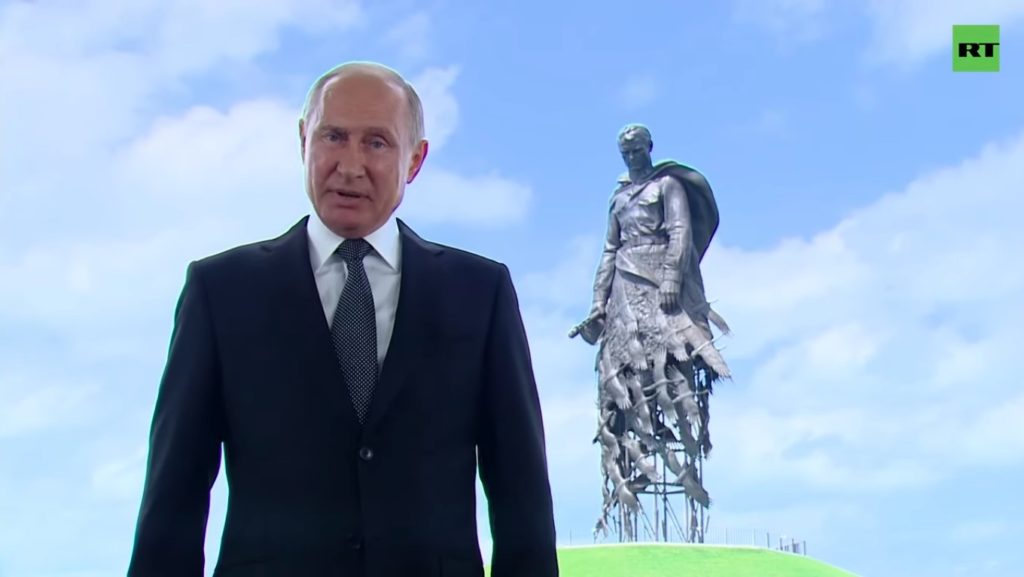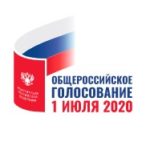A few days ago a substantial majority of the citizens of the Russian Federation said their yes to the several amendments to the constitution. The turn-out was large enough to legitimise the changes. What are they, these amendments?
We can group them under three headings:
[1] social,
[2] political and
[3] moral.
[1] The Russian Federation attempts to be a semi-socialist state, but since the word socialism has no good press in Eastern Europe, the socialist principle is re-branded as social or societal partnership, which
[a] guarantees the minimum wage and at least
[b] a yearly indexation of retirement pensions.
[2]The new constitution lays strong emphasis on Russia’s sovereignty, which is protected in the following manner:
[a] Russian law has precedence over international law;
[b] individuals holding high state-posts must not have citizenship other than Russian nor bank accounts abroad;
[c] Russians and the Russian language are named as factors uniting other nations into a multi-ethnic nation that creates statehood;
[d] an individual may be the country’s president for two terms with this stipulation, however, that the terms held up to the time when the amendments have come into force do not count, which is a rather clear indication that Vladimir Putin is thinking about continuing as the head of state.
[3] The Constitution, mentioning the belief in God as an important historical heritage, is tasked with
[a] protecting marriage as a union between man and woman along with
[b] guarding the memory about and the good name of the patriots who defended the motherland.
In the world where internationalists or transnationalists have locked their horns with nationalists or patriots the preponderance of the national law is a clear statement. A similar statement was made by the German Supreme Court, which only goes to show that the idea of subduing a nation’s law to its international counterpart has always been envisaged for weak states. One of the powerful tools of exerting much pressure on a state are allegedly international courts and their rulings. As it is, Russia has been a frequent target and there has been no end of accusations raised against Moscow. This instrument has now been rendered rather ineffective.
The provision that excludes people with double or multiple citizenship from holding high posts is referred to by Russian patriots as the nationalization of the elites. It was the Western powers that invented the concept of dual or multiple citizenship and for a reason. They know very well that one cannot serve two masters, that one will have to choose. And they knew very well which of the two or three countries an individual with double or multiple citizenship would choose: the richer, the one where life is easier, more affluent. Poorer and weaker countries thoughtlessly accepted laws allowing for dual and multiple citizenship or they were pressurized into doing it. Such a law was touted as – how otherwise – a human right, so you’d better accept it or else. Obviously, a Russian governor with a thick bank account and most often his children in Switzerland, Great Britain or the United States will tend to act in terms of the interests of those countries rather than his own. Thus dual or multiple citizenship creates a fifth column in a country. Individuals with vested interests abroad transfer their loyalty also there.
The concept of the Russian nation and language as forces uniting all of the Federation’s residents into a multi-ethnic nation has not met with the approval from at lest some of the leaders of national minorities, many of which have their own autonomous republics within the Federation, complete with their own governments and parliaments. On the one hand the Autonomous Republic of Tatarstan, to give an example, numbers almost 4 million citizens, which is nothing in comparison to the 146 million residents of the Russian Federation, but on the other – Norway has some 5 million people and is an independent state. True, particular nations in their autonomous republics within the Russian Federation have the full right to use their languages – also officially – but Russian must also be honoured there. Besides, without the knowledge of Russian a professional career outside the republic is barely possible. Even in the European Union without English one cannot think about a career in the European supranational administration or supranational political bodies.
One may take offence at the concept of multi-ethnic nation but that would be unfair so long as one accepts the meaning of the English word nation which is used precisely to denote a political entity rather than a large group of people related by origin or language. Are not Canadians a nation, even though technically speaking they are a blend of the English and the French? Are not the Hindus regarded as a nation even though India comprises a large number of ethnic groups that differ in language and even race? Are not Americans called a nation united around – among others – the English language while they differ enormously in terms of race, ethnic origin, faith and increasingly language?
What attracts most attention is the amendment about presidency. Like it is in very many other constitutions which all follow the American model in this respect at least, the number of presidential terms is limited to two, but this provision does not – as said above – include the terms held under the previous version of the constitution. Thus, the West has lost hope of ridding Russia of Vladimir Putin, the West’s formidable adversary. As expected, talk about dictatorship or quasi-monarchy is pervasive, but is it warranted? There is no time limit set for German or British chancellors and they are as powerful in their countries as a Russian president is in his. Besides, why should every state follow the American model? If Vladimir Putin for all practical purposes is a monarch, then why should that be regarded as something inappropriate? If a monarchy serves a given country well in a given historical period, so be it, especially in the face of the fact that the majority of the residents of the Russian Federation have consented to such a solution: all of them were well aware what the provision about presidency meant.
The protection of marriage as a union between man and woman is also a strong statement. It was precisely because of this amendment that the American and British embassies in Moscow hoisted rainbow flags – the emblem of homosexuals – in an attempt to influence the decision taken by the Russians. And influence this decision they did: seeing the glaring, shameless interference into domestic affairs of their state, many Russians decided to take part in the referendum and vote in such a way as to spite the interventionists.

President Putin’s address to the nation in the run-up to the constitutional referendum, shot against the Rzhev Monument to the Soviet Soldier (YouTube, Обращение Владимира Путина к россиянам.)
Lastly, the protection of historical memory. That’s something that is part of historical policy that many countries are pursuing, probably modelling themselves on Israel and generally Jewish diaspora which jealously guard a set of enshrined statements about past events concerning their nation. Any attempts at questioning the validity of those statements is dubbed as holocaust denial (crime) and hunted down by all means available.
Russia’s enemies infiltrating the country’s educational system in the Yeltsin era managed to re-write history in the handbooks in such a way as to minimize the Red Army’s effort and contribution to the victory over Germany during the Second World War and to elevate the importance of the Western allies. Recently, there have been attempts aiming at blaming the Soviet Union for the outbreak of the war and equating that guilt with that of Germany. That may have been the last straw which compelled Russian elites to include such an amendment in the constitution. From now on, blaming Russia for the outbreak of the war or vicious underestimating Soviet effort during it will probably be punishable by law.
A similar law was to have been passed by Poland roughly a year ago but the strong pressure from Tel Aviv forced the Polish authorities to back out within twenty-four hours. The Polish prime minister then apologised profusely and publicly on Polish TV in English to the Israeli prime minister and presented the whole as a success of Polish diplomacy to the stupefied Polish citizens. Russia is not Poland, though, and will not be intimidated like that.
The amendments may be looked upon as a declaration of Russia’s sovereignty. Which is expressed in its independence of foreign legal rulings, exclusion of individuals with foreign citizenship from holding important posts and prolongation of the presidency of Vladimir Putin, Russia’s present-day Peter the Great, the tsar-reformist reigning at the beginning of the eighteenth century. Judging by unfavourable comments regarding the amendment enabling the president incumbent to continue in the office, this one change is a real thorn in the flesh of the anti-Russian Western elites. In the 90s of the previous century they were so close to keeping a permanent vice-like grip on the largest republic of the former Soviet Union, and while they are in full control of Ukraine and the Baltic States, Russia and Belarus have managed to break out.




